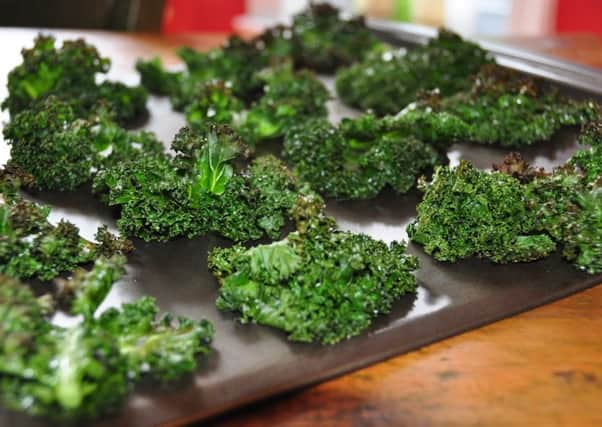Our need for sweet food goes back to when we had to forage and hunt


Our need for sweet food goes back to when humans had to forage and hunt for meals.
Food was about loading up on calories for energy and not about any kind of enjoyment. Most of the diet of early inhabitants consisted of wild fruit and bitter barks, roots and tubers. In the last 100 years or so we have selectively taken most of the bitter out of our diet. The daily diet has moved from being mainly plant based to one that’s meat and grain heavy. We are born with bitter taste receptors on our tongue, throughout the digestive system and on other organs like the pancreas. For many they will go largely unused. When something bitter hits your tongue it sends a signal that primes the gastrointestinal tract for action. Receptors in the gut then stimulate the production of enzymes that break down food effectively. Without these receptors we end up with dry food in our stomachs, causing weight gain and digestive issues. Our western diet is the result of an overly starchy intake in the 21st century.
Advertisement
Hide AdAdvertisement
Hide AdSugar has had a particularly bad press recently and sometimes unjustifiably so. A healthy diet should be about balance and trying to combine the sweet things with healthy leaves, stems, bark and roots. One Tunnocks teacake on a Saturday afternoon isn’t going to do much damage especially if its complemented the next day with an intake of healthy greens and seeds.
Most herbs contain essential bitter oils especially hard ones like thyme, rosemary and sage. They’ve been used in traditional medicine for centuries and can be added to vegetables before and after cooking. Kale, rocket, spinach, radicchio, cabbage and broccoli mightn’t be the most pleasing of foods but they’re fantastically good for the digestive system and overall health. Turmeric, ginger, artichoke, sesame seeds, saffron, dill and coffee all have a myriad of nutritional benefits derived from their natural bitterness.
As well as incorporating these ingredients into your cooking, a bitter aperitif before dinner will make you 30% less hungry. When I was growing up my friend’s sophisticated dad used to drink Campari (a herbal bitter alcoholic drink) with grapefruit juice. It looked delightfully pink but tasted so sour to our unrefined palates. Nowadays I love an occasional Negroni – Campari ( a herb based liquor), vermouth and gin served over ice. Maybe I should have one every evening before dinner and shed 30% of my body weight…
Milk thistle extract can be bought in chemists and health food shops. Add a few drops to water and knock back before meals for a non alcoholic alternative.
Advertisement
Hide AdAdvertisement
Hide AdWe’ve been encouraged to follow the “Mediterranean” diet for years – lots of tomatoes, grilled fish, olive oil and citrus. Perhaps it’s actually the Italians love of bitter that has sustained them for years? They’ve long appreciated turnip tops, radicchio, lemon, artichokes and coffee alongside bitters in their pre-dinner aperitif. My first recipe this week is packed with healthy ingredients – kale, broccoli and dill in a salad topped with dukkah. Dukkah is a spicy hazelnut and sesame seed condiment that’s perfect here with greens or with fish, grilled meats or just with some oil for dipping. My other recipe takes cleansing ginger and uses it in a glaze for pork chops and then as the main ingredient for a dressing. Ginger, soy, honey, sesame, turmeric and garlic are mixed together with bashed cucumbers and makes for a crunchy, zingy accompaniment . It’s healthy and you get to take your frustrations out to boot by throttling the cucumbers. They absorb all the flavours and are easily digested.